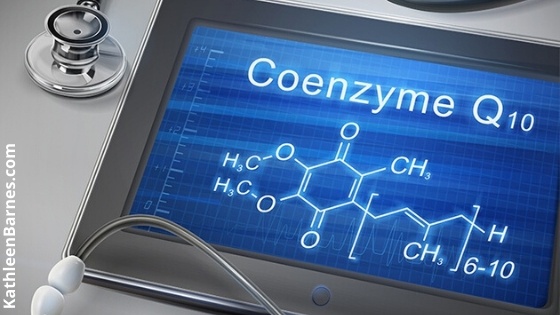 Coenzyme Q10 is also known as CoQ10, but my favorite name for it is ubiquinone, meaning it is ubiquitous: it’s everywhere. It’s found in every one of the trillion cells in your body.
Coenzyme Q10 is also known as CoQ10, but my favorite name for it is ubiquinone, meaning it is ubiquitous: it’s everywhere. It’s found in every one of the trillion cells in your body.
CoQ10 is needed for energy production, cell growth and maintenance. It’s a powerful antioxidant, protecting cells from damage from environmental toxins and the ravages of aging.
It also helps protect heart and skeletal muscles and is especially important for anyone who is taking statin drugs because these drugs deplete the body’s natural supply of CoQ10.
Research has long shown us that people with several types of cancer have low levels of CoQ10 in their bloodstreams, and it can protect heart muscle from the toxic effects of some chemotherapy drugs.
Now we find several new studies released in the last few months that provide more incentive to keep CoQ10 levels high.
Here’s a quick summary of seven important new studies:
- Reverse kidney failure from the use of statin drugs: Cholesterol-lowering statin drugs are dangerous for many reasons and here’s another one: they cause muscle fibers to break down, releasing a toxic substance in the blood stream that can cause kidney failure. The important Australian research shows that CoQ10 helps eliminate the toxic substance from the bloodstream, helping reverse kidney failure caused by statin drugs.
- Lower blood pressure and cholesterol in people who have had a heart attack: Another Iranian study that shows people who had already had one heart attack had significantly improved blood pressure and ratios of good and bad cholesterol when they took CoQ10 daily for 12 weeks, leading researchers to theorize that if might decrease the risk of a heart attack.
- Delay loss of cognition function in people with Parkinson’s disease: Parkinson’s is a dreadful neurodegenerative disease that robs victims of the ability to walk, motor control (think of Michael J. Fox and his courageous battle against the tremors typical of Parkinson’s) and eventually brings on memory loss like Alzheimer’s disease. This Chinese study confirms impressive results with CoQ10 recipients having only one-fifth the memory loss of patients who did not receive the nutrient.
- Improves chance of pneumonia cure in elderly: Another Iranian study showed that elderly people who had severe pneumonia improved their chances of survival when they were given 200 mg of CoQ10 a day along with antibiotics for 14 days. Of those who received CoQ10, 88% were cured by Day 7 and all had shorter hospital stays, leading researchers to recommend CoQ10 treatment for elderly patients with pneumonia.
- Relieve chronic gastritis and H. pylori infection: People with stomach pain and ulcers caused by the H. pylori bacteria who were given CoQ10 significantly reduced their levels of inflammation and oxidative stress, which can cause more problems. They also reported less pain and a better quality of life, according to this Iranian study published in the April edition of the Journal of Clinical Pharmacology.
- Relieves pain and depression in people with multiple sclerosis: This study published in Nutritional Neuroscience in January shows that taking 500 mg of CoQ10 a day cut depressive symptoms in half for multiple sclerosis patients and reduced fatigue by two-thirds.
- Protects against DNA damage in healthy young adults: Japanese researcher found that CoQ10 supplementation in healthy young adults for just two weeks resulted in a slight protection of DNA from oxidative damage. This means that it protected cells from being damaged by environmental toxins and free oxygen radicals, the underlying cause of many types of disease, including diabetes, heart disease and cancer. It would be interesting to see the long-term protective effects of longer-term supplementation on people as they age.
You can get CoQ10 in small amounts in food primarily from organ meats, beef, fatty fish and peanuts.
If you choose to supplement your CoQ10 levels, consider taking 1 mg of CoQ10 for every pound of body weight, so if you weigh 150 pounds, take 150 mg.
Want more information from Kathleen on supplements? Click here!







